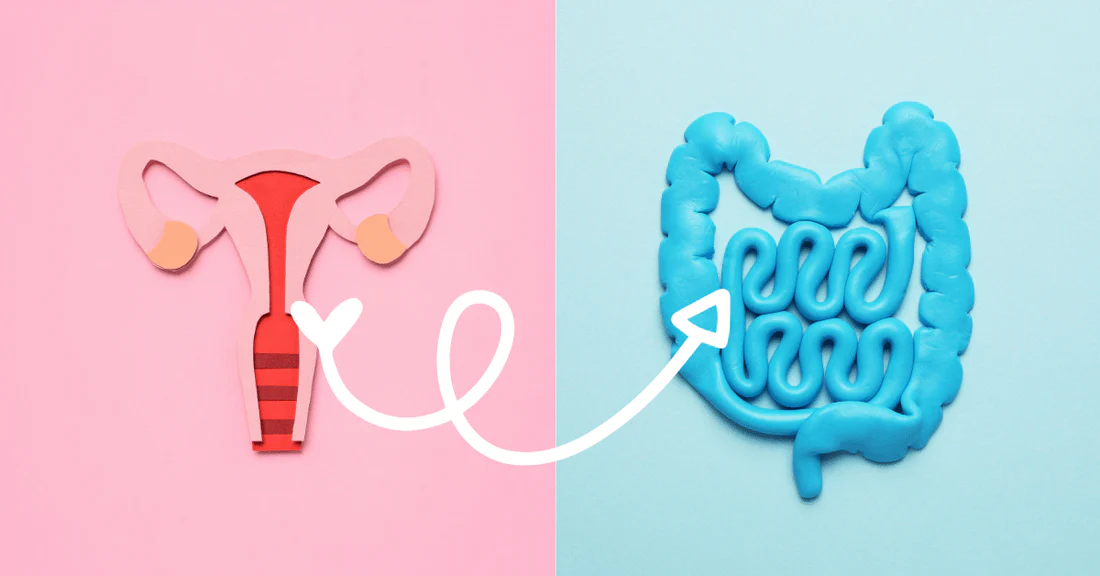The Fascinating Connection Between Gut Health and Vaginal Microbiota: Unveiling the Link
Introduction:
At Nutritales, we believe in uncovering the intricate connections within our body. In this blog, we dive into the exciting research that sheds light on the relationship between gut health and vaginal microbiota. Understanding this connection opens doors to holistic well-being and empowers women to take charge of their health.
1: Unveiling the Gut-Vaginal Axis
Introducing the concept of the gut-vaginal axis, highlighting the communication and influence between the gut microbiota and the vaginal microbiota
Recent research has shed light on the fascinating concept of a shared microbial ecosystem between the gut and the vaginal microbiota. It is now understood that the health of one can influence the other, and maintaining a balanced gut microbiome can positively impact the composition and balance of the vaginal microbiota.
Several mechanisms have been proposed to explain this connection:
Immune System Interaction: The gut and vaginal mucosa have extensive immune system interactions. A healthy gut microbiome promotes immune tolerance and balance, which can extend to the vaginal environment. This immune balance helps maintain a diverse and stable vaginal microbiota.
Hormonal Influence: Hormonal fluctuations, such as those that occur during the menstrual cycle, can impact the gut microbiome, leading to changes in vaginal microbial composition. Similarly, changes in vaginal microbial balance can be influenced by hormonal fluctuations.
Microbial Translocation: Microbes from the gut can translocate to the vaginal environment, potentially impacting the vaginal microbiota. Disruptions in the gut microbial balance, such as dysbiosis, may lead to an altered transfer of microbes to the vagina.
Metabolic Interactions: The gut microbiota plays a crucial role in metabolizing various compounds. Metabolites produced by the gut microbiota can be circulated in the bloodstream and impact the vaginal environment, influencing microbial composition.
By promoting a healthy gut microbiome, individuals can positively influence the vaginal microbiota and support optimal vaginal health. Here are some general tips to support gut and vaginal health:
Consume a Balanced Diet: A diet rich in fiber, fruits, vegetables, and fermented foods can help maintain a diverse and thriving gut microbiome. This, in turn, can promote a healthy vaginal microbiota.
Probiotic Supplementation: Consider incorporating probiotic-rich foods or supplements that contain strains known to benefit both gut and vaginal health, such as Lactobacillus species.
Practice Safe Hygiene: Maintain good hygiene practices, such as proper wiping techniques, avoiding harsh soaps, and wearing breathable underwear, to support a healthy vaginal environment.
Avoid Antibiotic Overuse: While antibiotics are sometimes necessary, their overuse can disrupt the natural balance of the gut and vaginal microbiota. Use antibiotics judiciously and as prescribed by a healthcare professional.
It’s important to note that every individual’s microbiome is unique, and what works for one person may not work for another. If you have specific concerns about your gut or vaginal health, it is recommended to consult with a healthcare professional who can provide personalized advice and guidance tailored to your needs.
2: Linking Gut Dysbiosis to Vaginal Health Concerns
Research has shown a compelling link between gut dysbiosis, an imbalance in the gut microbiota, and the development of vaginal health issues such as bacterial vaginosis (BV) and yeast infections.
An unhealthy gut microbiota, marked by an overgrowth of harmful bacteria or a lack of microbial diversity, can disrupt the delicate balance of the vaginal microbiota. Here’s how gut dysbiosis can contribute to these conditions:
Disrupted Immune Response: An imbalanced gut microbiota can weaken the immune system, impairing its ability to ward off harmful bacteria and maintain a healthy vaginal environment. This weakened immune response can increase the susceptibility to infections.
Altered Vaginal Microbial Composition: The gut and vaginal microbiota are interconnected, and changes in the gut can influence the vaginal environment. An imbalance in the gut microbiota can lead to an overgrowth of harmful bacteria, such as Gardnerella vaginalis, associated with bacterial vaginosis, or Candida species, leading to yeast infections.
Inflammation and pH Imbalance: An unhealthy gut microbiota can trigger chronic inflammation throughout the body, including the vaginal area. Inflammation can disrupt the delicate pH balance of the vagina, creating an environment that is more favorable for the growth of harmful bacteria or yeast.
Maintaining a balanced and diverse gut microbiota is crucial for optimal vaginal health. Here are some strategies to support a healthy gut microbiota and promote vaginal well-being:
Eat a Nutrient-rich Diet: Consume a diet rich in fiber, fruits, vegetables, and whole grains to nourish the gut microbiota. These foods provide essential nutrients and promote microbial diversity.
Probiotics and Fermented Foods: Incorporate probiotics and fermented foods into your diet. Probiotics can help restore a healthy balance of beneficial bacteria in the gut, which may have a positive impact on the vaginal microbiota.
Limit Antibiotic Use: Avoid unnecessary or prolonged antibiotic use, as it can disrupt the gut microbiota and increase the risk of vaginal infections. Use antibiotics judiciously and as prescribed by a healthcare professional.
Manage Stress: Chronic stress can negatively affect the gut microbiota. Implement stress management techniques such as exercise, meditation, and adequate sleep to support a healthy gut and vaginal environment.
By prioritizing gut health and maintaining a diverse and balanced gut microbiota, you can reduce the risk of vaginal health issues and promote overall vaginal well-being. If you experience recurrent or persistent vaginal health concerns, it is advisable to consult with a healthcare professional for proper diagnosis and personalized treatment options.
 Nurturing Gut and Vaginal Health Together
Nurturing Gut and Vaginal Health Together
Promoting a healthy gut and supporting vaginal microbiota balance is essential for overall well-being. Here are some practical tips and strategies to achieve this:
Nourish with a Nutrient-Rich Diet: Consume a diet rich in fiber, fruits, vegetables, and whole grains. These foods provide essential nutrients and promote microbial diversity in both the gut and vagina.
Include Fermented Foods: Incorporate fermented foods like yogurt, kefir, sauerkraut, and kimchi into your diet. These foods contain beneficial bacteria that can support the balance of both gut and vaginal microbiota.
Consider Probiotics and Prebiotics: Probiotics are live bacteria that can help restore and maintain a healthy microbial balance. Look for specific probiotic strains that are beneficial for vaginal health, such as Lactobacillus rhamnosus and Lactobacillus crispatus. Prebiotics, on the other hand, are dietary fibers that serve as food for beneficial bacteria. They can help stimulate the growth of these bacteria in the gut and vagina.
Limit Sugar and Processed Foods: Excessive sugar and processed foods can negatively impact the gut and vaginal microbiota. These foods can promote the growth of harmful bacteria and yeast, leading to imbalances.
Practice Safe Hygiene: Maintain proper hygiene practices, such as using gentle and pH-balanced cleansers for intimate areas. Avoid douching, as it can disrupt the natural balance of vaginal flora.
Manage Stress: Chronic stress can affect both the gut and vaginal microbiota. Engage in stress management techniques like exercise, meditation, and deep breathing to support a healthy microbial balance.
Avoid Unnecessary Antibiotic Use: Antibiotics can disrupt the balance of both gut and vaginal microbiota. Use antibiotics only when necessary and as prescribed by a healthcare professional.
It’s important to note that while probiotics and prebiotics can be beneficial, they may not be suitable for everyone. Consult with a healthcare professional before starting any supplements or making significant changes to your diet, especially if you have underlying health conditions or are pregnant.
By adopting these strategies and incorporating them into your daily routine, you can promote a healthy gut and support vaginal microbiota balance. Remember that everyone’s microbiota is unique, and what works for one person may not work for another. Listen to your body and make choices that align with your individual needs and preferences.
Conclusion:
The research on the connection between gut health and vaginal microbiota opens up a world of possibilities for women’s wellness. By prioritizing a healthy gut microbiota through a balanced diet, lifestyle modifications, and targeted interventions, women can positively influence their vaginal health. At Nutritales, we are committed to providing evidence-based guidance to empower women on their journey to holistic well-being. Let’s embrace the power of the gut-vaginal axis and unlock the potential for optimal health and vitality.

